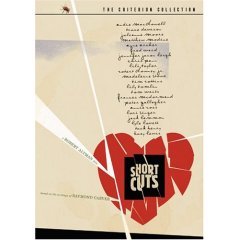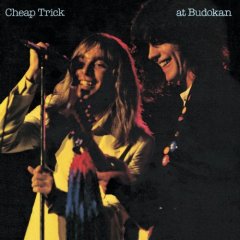
And the countdown continues for my favorite CD's of all time. The next CD sort of went with a theme I've often had with popular acts, I get into them after their initial peak. I didn't like Prince or Bruce Springsteen until a few years after they had their signature 80's albums (Purple Rain and Born In The USA, respectively) probably because between MTV and Top 40 radio a successful artist became omnipresent for a while. As good as the music was in all cases I resisted these artists because I felt like their music was being rammed down my throat. It was the same way with the artist at Number 59...
U2 - Achtung Baby (1991)
The first U2 tape I ever had was a copy of War (1983). I liked it as well as the song "Pride (In The Name Of Love)" in 1984 but was not a literal fan of the band. Then The Joshua Tree (1987) happened and U2 hit the stratosphere both commercially and critically. They were everywhere on TV, on the radio and in magazines. They stood for everything that was right in Rock and politics plus their religious background made them popular with the Christian Rock crowd. They were perfect. Perfectly annoying from my view.
Apparently, U2 felt the same way and after the bloated Rattle and Hum album (1989) decided to do something about it. Bono downplayed some of his messianic tendencies by throwing on some sunglasses and playing the rock star in all its excess. The band altered their signature sound by adding distortion, feedback, drum loops and hip hop shuffle rhythms into the mix. Best of all, dropped most of their preachiness (in song at least) and added a dose of self effacing irony. U2 became human and was much better for it.
This is where I came into U2's music, the first single "The Fly" was unlike anything I ever heard. The distorted guitars and vocals, the shuffling drum track and the alternately crooning and spoken word chorus captured my attention. A local radio station played the entire CD and I was impressed. My friend (a longtime U2 fan) asked if I would like to see them live and I went. Live, they had that rare sense of charisma that can make a sports arena feel like a small club. The playing was intense and unique (The Edge's helicopter sounding guitar riffs ensure that) and the songs were catchy and anthemic. I realized what I had been missing all those years and became a fan of U2.
Achtung Baby will not be remembered as the greatest U2 record, but it is their most varied and the easiest to relate to. The big hit, "One", has become a rock standard over time and is a wonderful ballad about the need to overcome differences whether they be personal, political or spiritual. Bono's impassioned vocal and the band's empathic playing as they build from a soft beginning to a big finish seals the deal. This album would be memorable for this song alone.
But there's more! "Mysterious Ways" balances a catchy chorus ("It's alright, it's alright, it's all-right/ She moves in Mysterious Ways!") with a spare shuffling drum beat with the Edge cutting in (no pun intended) with bursts of guitar and synthesizer. Plus, live the song featured Bono singing to a belly dancer! Another hit, "Even Better Than The Real Thing" with it's ironic lyrics and driving rock groove became the template for future U2 songs ("Discotheque" and "Vertigo" followed a similar pattern). My personal favorite on the disc, "Who's Gonna Ride Your Wild Horses" finds the band doing an actual relationship song to a galloping beat and strident chorus.
Of course, even with relationship songs and irony U2 still has some of that political commentary they're known for. The apocalyptic "Until The End Of The World" with it's hard charging guitars is a great rocker with a distinct nihilistic feel to it. "Tryin' To Wrap Your Arms The World" shows Bono a bit worn but still worried about the state of the planet.
With Achtung Baby, U2 was able to drop their "holier than thou" act and play on a more human scale. They were also successful musically in adding a host of other musical styles and effects to their previously immaculate sound. U2 shows the passion and angst their known for but offsets it with humor and irony. This disc changed my opinion from annoying to a lifelong fan.






